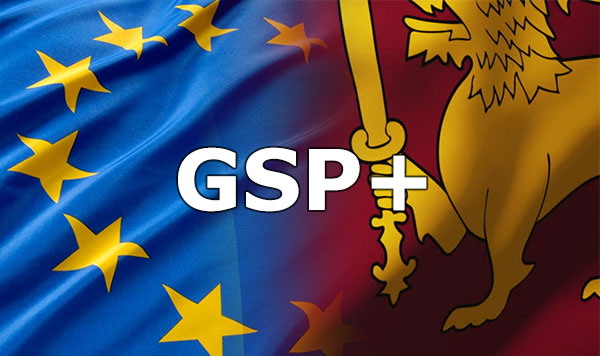If GSP+ concession is withdrawn Sri Lanka faces danger

At a time when Sri Lanka faces the possible danger of losing its GSP Plus concession, economic experts warn that having to pay duty will make the country less competitive in the International market.
Economists have sounded alarm bells as the European Parliament dropped a bombshell last week on the likelihood of Sri Lanka losing its GSP Plus concession. On June 10, a resolution was adopted by the European Parliament urging the European Commission to temporarily withdraw Sri Lanka’s GSP+ status.
As Sri Lanka is experiencing a three-week lockdown following a third wave of the pandemic, the apparel industry was one among a few essential services that was allowed to function.
BENEFITS
GSP+ aims at supporting Sri Lanka’s economic development through more trade with the EU, as well as contributing to diversifying exports and attracting investments. These one-way trade preferences will consist of the full removal of duties on 66% of tariff lines, covering a wide array of products including textiles and fisheries. The GSP+ scheme resulted in significant benefits for apparel exports due to the significant contrast between its tariff rates and those of standard GSP.
The scheme encourages increased value addition within Sri Lanka, resulting in the setting up of new industries, and creating new employment opportunities in the country.
WITHDRAWAL WILL AFFECT SRI LANKA’S EXPORTS
“The withdrawal of GSP+ will affect Sri Lanka’s exports to the European Union (EU) and will show that the country has not reached an economic status to compete with other countries in the International market,” cautioned Sirimal Abeyratne, Professor in Economics at University of Colombo.
“GSP+ is given to eight countries and according to the eligibility criteria, these nations should be vulnerable, developing countries with low level of exports to EU countries. This means it has to be a poor country because the term vulnerable means it can’t stand against external shocks,” he explained. At present, the GSP + preference is extended by the EU to Armenia, Bolivia, Cabo Verde, Kyrgyzstan, Mongolia, Pakistan, The Philippines, and Sri Lanka.
“The second criterion is that Sri Lanka should ratify certain International conventions to receive GSP+. But we haven’t been able to implement some of these conventions,” Prof. Abeyratne added.
(Source: Daily Mirror – By Kamanthi Wickramasinghe)
Latest Headlines in Sri Lanka
- Sri Lanka PM calls for education reform to strengthen nation February 1, 2026
- Sri Lanka revises fuel prices from February 1, 2026 January 31, 2026
- Sri Lanka declares essential services to ensure recovery after Cyclone Ditwah January 31, 2026
- Sri Lanka disburses Rs. 50,000 relief to 70% of Cyclone Ditwah victims January 31, 2026
- Sri Lanka to launch national review on social media’s impact on children January 30, 2026



No danger whatsoever,
The GSP was withdrawn when the country was being ruled by our illustrious leader, President MR.
Following that, the economy grew exponentially.
The alternative choice is to be governed by the European Parliament which has become the proxy for the LTTE terrorists living in Europe. Their next next two generations has now been born in those countries have the access and the ability to influence the politicians and decisions they make. Sri Lankans too busy fighting among themselves, insulting China for everything they have done, have no idea what is going to hit them all in another few years time!